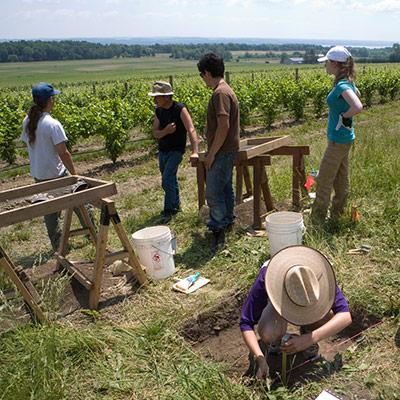As an archaeology major, you’ll benefit from an interdisciplinary approach to a broad range of cultures, with courses in classical archaeology and art, Near Eastern studies, and the archaeology of Eurasia, the Americas and Africa. You’ll gain hands-on experience through lab-based courses in zooarchaeology, ceramics, dendrochronology and in the material cultures of Native Americans and Euro-Americans, and will have opportunities for fieldwork both in the U.S. and abroad. The Cornell Institute of Archaeology and Material Studies (CIAMS) is one of the leading archaeology groupings in the U.S. and offers one of the few majors in archaeology in the country.
Sample classes
- Archaeology of North American Indians
- Art and Archaeology in the Ancient Mediterranean World
- Drinking Through the Ages: Intoxicating Beverages in Near Eastern and World History
- Across the Seas: Contacts Between the Americas and the Old World before Columbus
Outcomes
All information below is based on the 2022 First-Destination Post-Graduate Survey. Lists are not exhaustive; rather, they are a sampling of the data. If you would like more information, please email as_careers@cornell.edu
What can you do with a degree in Archaeology?
Graduate school:
Archaeology students pursued various advanced degrees like their MS and PhD. Their graduate field interest ranges from archaeology to computer science.
These ambitious individuals have chosen to continue their education at prestigious institutions like Stanford University, the University of Edinburgh, and Texas A&M University.
Employment:
The majority of archaeology graduates entered sectors in education, government, biotech, and communications.
Where 2022 Archaeology Graduates Work
| Employer | Job Titles |
|---|---|
| Cornell University | Metadata Assistant |
| Covance | Sample Handling Assistant |
| Ernst & Young | Consulting Staff |
| Museum of Modern Art | Assistant Video Editor |
| Smithsonian Institution | Archive Center Intern |
